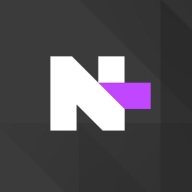

Commvault Cloud and N-able Cove Data Protection are both comprehensive data protection solutions. N-able Cove Data Protection seems to have the upper hand due to its simplicity, reliability, and favorable pricing structure.
Features: Commvault Cloud offers multi-cloud support, diverse integration capabilities, and robust security features. N-able Cove Data Protection provides intuitive management, strong backup reliability, and effective daily operations.
Room for Improvement: Commvault Cloud users suggest reducing setup complexity, increasing updates frequency, and streamlining functionality. N-able Cove Data Protection users recommend better detailed reporting, improved scalability options, and enhanced interfaces.
Ease of Deployment and Customer Service: Commvault Cloud's deployment can be intricate and requires significant technical expertise, while its customer service is noted as supportive but sometimes slow. N-able Cove Data Protection offers straightforward deployment and responsive customer service.
Pricing and ROI: Commvault Cloud users highlight high initial setup costs but acknowledge good long-term ROI. N-able Cove Data Protection users find the pricing competitive and ROI impressive due to ease of use.
I have experienced time savings and money savings.
Customer support has very closed departments, requiring us to shuffle between them to get one thing done because representatives have limited accessibility.
If I raise a ticket, they get back to me.
There are some limitations, such as storage, where I cannot support a large number of employees who need to back up their data.
N-able Cove Data Protection does not provide a lot of SaaS backup products, which is an area they can improve.
In terms of pricing, N-able Cove Data Protection is neither cheap nor expensive compared to other competitors.
We can back up unlimited TBs due to our per node license.
The most valuable feature of N-able Cove Data Protection is its ease of use.


Commvault Cloud is the ultimate cyber resilience platform built to meet the demands of the hybrid
enterprise. Beyond its core functionality of data backup and recovery across diverse workloads, including applications, databases, virtual machines, and files, Commvault Cloud stands out as a robust defense against ransomware. Going beyond backup, the platform integrates advanced data security features such as encryption, access control, and threat detection, safeguarding against unauthorized access and cyber threats.
With tools for data management, classification, and migration, businesses can optimize storage costs, enhance accessibility, and comply with regulations seamlessly. Boasting cloud integration with major providers like AWS, Azure, and Google Cloud, Commvault Cloud leverages the scalability and flexibility of the cloud for comprehensive data protection and management. The platform's automation capabilities streamline tasks, and its reporting and analytics features provide valuable insights into data usage, potential risks, and optimization strategies. Commvault Cloud is not just a security tool; it is a key component of cyber resilience, enabling organizations to not only protect against cyberattacks but also recover swiftly and minimize the impact of incidents. Elevate your cyber resilience strategy with Commvault Cloud.
Cove Data Protection, from N-able, is a comprehensive solution designed to safeguard critical business data. It offers a range of features including backup and recovery, disaster recovery, and endpoint protection. With automated backups and flexible scheduling options, it ensures data is protected and easily recoverable.
The solution also includes advanced security measures such as encryption and ransomware detection to prevent unauthorized access and data breaches. Cove Data Protection provides seamless integration with various platforms and offers centralized management for efficient monitoring and control.
With its user-friendly interface and robust capabilities, Cove Data Protection is an ideal choice for businesses seeking reliable data protection.
We monitor all Cloud Backup reviews to prevent fraudulent reviews and keep review quality high. We do not post reviews by company employees or direct competitors. We validate each review for authenticity via cross-reference with LinkedIn, and personal follow-up with the reviewer when necessary.